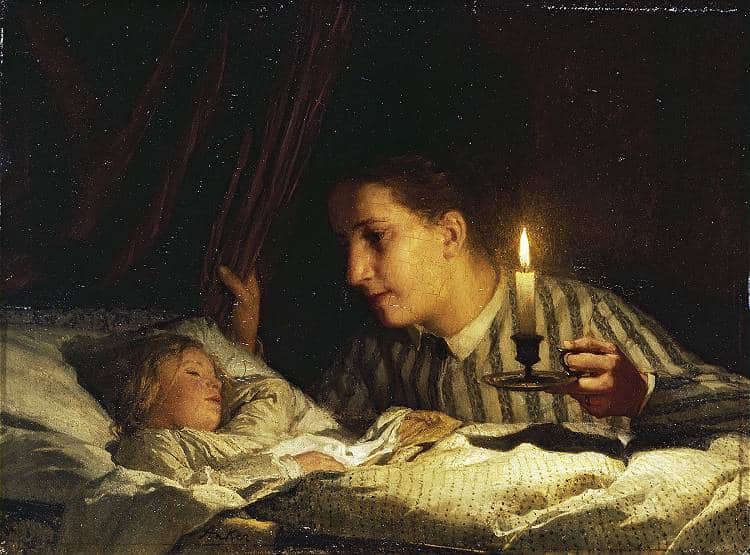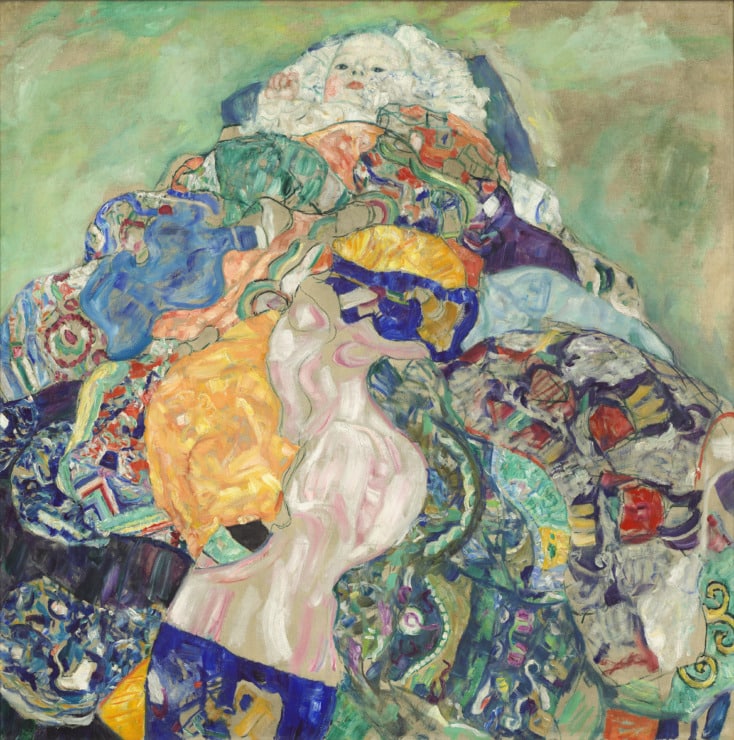< Return to all Wordsworth poems
The Cottager to Her Infant
The days are cold, the nights are long,
The north-wind sings a doleful song;
Then hush again upon my breast;
All merry things are now at rest,
Save thee, my pretty Love!
The kitten sleeps upon the hearth,
The crickets long have ceased their mirth;
There’s nothing stirring in the house
Save one wee, hungry, nibbling mouse,
Then why so busy thou?
Nay! start not at that sparkling light;
‘Tis but the moon that shines so bright
On the window pane bedropped with rain:
Then, little Darling! sleep again,
And wake when it is day.
—William Wordsworth
Enjoy Artistic Representations of “The Cottager to Her Infant” by William Wordsworth

Young mother contemplating her sleeping child in candlelight by Albert Anker, 1875.

Baby (Cradle) by Gustav Klimt, 1896.
Listen to this Reading of “The Cottager to Her Infant”
Listen to this Musical Interpretation of “The Cottager to Her Infant” by William Wordsworth
About William Wordsworth
William Wordsworth, an English poet born in 1770, is credited with having a strong impact on the poetry of his time. He worked with Samuel Taylor Coleridge to publish a collection, Lyrical Ballads, which includes poems believed to be among the most influential in Western literature. With this publication, the two helped initiate English literature’s Romantic Age.

Jerwood Centre at the Wordsworth Trust in Grasmere
Wordsworth also worked to increase the accessibility of poetry, encouraging the use of more common language, and promoting the virtues of lyric poetry.
While in college, Wordsworth went on a walking tour of England and lived for a time in France, where he was greatly impacted by the French Revolution. His earliest work was published in 1793.
His most famous work, The Prelude, was published by his widow in 1850. He worked on the semi-autobiographical poem throughout much of his life, never quite satisfied to publish it.
Wordsworth served as England’s Poet Laureate from 1843 until he died in 1850.
That’s it for The Cottager to Her Infant by William Wordsworth!